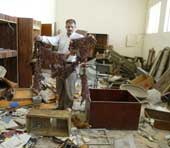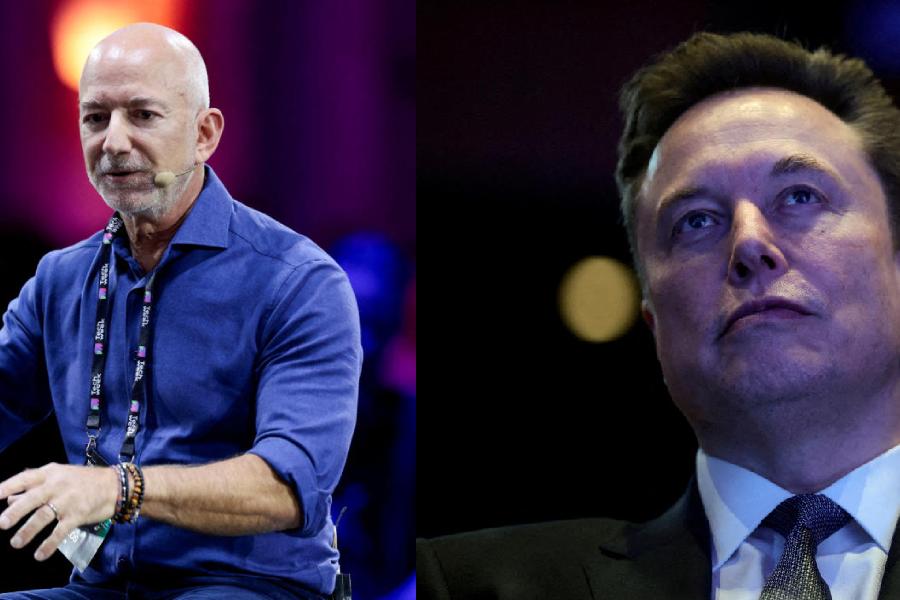|
|
| Just a little bit of poison |
All of us who have growing children need to put aside a little for their college education, and I suppose Amir Khan and Shah Rukh Khan are no different. Scratching my head as I am, I cannot find any other way of understanding these guys’ ongoing love affair with Coca-Pepsi. Clearly, Bombay’s two top stars have major insecurities about their box-office shelf-life, and therefore need to sweat away in this particular branch of promotional work, no matter what their paymasters ask them to do. Because, it’s one thing to be hamming it up, showing five-fingered palms to Bihari dukaan-wallas and so on, and quite another to be showing one digit to any notion of common-sense, as Amir has done recently.
For those of you who haven’t seen it, let me describe the TV ad I’m referring to:
AK stands before a Coke assembly plant, dressed in the cleanest of clean white shirts. He talks about allegations that have been unfairly thrown at Coke recently and he says he has come here to check them out. He is next seen inside a laboratory-like space, nodding as a company boffin in a long white coat explains some rocket-science to him. We don’t see or hear what is explained but, at the end of it, AK is even more strongly convinced that his beloved Coke meets world health standards and is safe to drink. As he talks to us, he snatches a passing bottle from a conveyor-belt (bottle-cap on), lowers it below the camera frame and brings it up again (cap now off) to take a deep swig. The message being, Coke is safe and wonderful to drink anywhere in India, even when it’s still bubbling warmly in the factory.
I haven’t seen SRK’s equivalent Oscar-winning performance for Pepsi. If it doesn’t already exist, no doubt it’s under production as we speak.
A friend involved in Centre for Science and Environment’s latest soft-drinks investigations said this to me in sposhto Bangla when the whole thing hit the headlines: “Just dekhbi, ebar ora puro jinish-ta ke naach gaan korey counter korbey.” (You just watch, they will now counter the whole issue with song and dance.)
In the event, this didn’t happen immediately. Just after CSE's report went public, Pepsi, for instance, took out full-page ads in all the broadsheets, serious black-and-white ads, the copy consisting of serious-looking tables which basically told us that all sorts of daily foods, from mother’s milk and regular milk to several vegetables, had traces of pesticides and, compared to these, carbonated soft-drinks were the safest. While Pepsi bothered with printed figures and suchlike (mainly, I suspect, so that the newspapers could be waved at errant politicians hesitant to sip from the carbonated chalice), Coke more or less said the same thing using smug, smooth and round PR cowboys.
All of this elaborate smoke and mirrors comparison strove to obfuscate a simple point: we need all sorts of food for our nutrition; most of this food cannot — in today’s world — be produced without pesticides; in order to live, we and our children have no choice but to ingest a certain amount of pesticide. Taken to its logical conclusion, the weighing of pesticide levels between, say, potatoes and Pepsi, or chapattis and Coke, would mean we should give up all other food and depend solely on several bottles of Oye Oye Bubbly laced with Thande ka Tadka for our daily sustenance — surely a Cola-exec’s ultimate wet dream, but not very realistic.
What the Coksi and Pepca boys don’t share with us is that the Food and Agriculture Organization has something called a “maximum residual limit” for pesticides in agricultural produce world-wide, and that there is a constant, ongoing effort to reduce this MRL. What the Ton-Ton MaCola don’t tell us is that the FAO has mapped the food habits of different cultures, (i.e what goes into the average “food-basket” in a society, like rice, daal, vegetables and fish in Bengal, or pasta, veg and meat in Italy) and made calculations as to what an acceptable daily intake can be, over the lifetime of a person in each particular culture. In other words, what the FAO asks is: “If a Texan cannot do without t-bone steak and a Punjabi without paranthas, then what is the maximum level of pesticide acceptable in order to get that steak or that parantha to the mouth?” What the Cola Nostra don’t let slip is that, far from shaving down the MRL, countries such as India have a pesticide level that’s way beyond the ADI calculated for our various food-cultures. Translated, this means an average Bong eating an average Bong meal will inevitably ingest far more poisonous chemicals than are good for her, whereas, an average Brit having a ditto Brit meal will ingest pesticides within acceptable limits, (that is, limits acceptable to the FAO but ones that are being shaved down every day through processes forced to change because of public furore and ensuing legislation).
Just as the first thing an obese person needs to reduce is his or her fat intake, the operative word being “reduce”, we as a nation need to reduce our pesticide intake. Now, if in front of you was a thaali of food, all of it containing a certain amount of pesticide but also, obviously, containing crucial nutrients, and next to that thaali was a bottle of chilled, dark, fizzy-drink, what would you abandon first? Simple answer? The problem is, it’s not a choice an American, British or European person has to make. The first-worlder may choose to do away with the Cola because the sugar rots the teeth and makes their kids hyper, but they don’t need to chuck the bottle of carbonated crap because of pesticide content. Why? Because the Coksi and Pepca in their countries don’t have any pesticide in them at all.
It’s not about damaging the business environment and a possible reduction of FDI into shiny new India; the question the Cola Nostra don’t want us to ask is: “Why the hell can’t you bastards, you who are some of the biggest brands in the world, backed by billions of dollars, clean up your Indian product totally and completely?”
A couple of days ago, a newspaper reported a comment by Pervez Musharraf when asked about the rumours of a coup in Pakistan: “These reports are absolute nonsense, thank God we are not a banana republic.” Well, once you finish guffawing at that, you might want to pause and ponder — Pakistan may be what it is, but what is India? We are a country where international Cola companies find it far cheaper to hire the most expensive movie stars to defend their interests than to clean up the bad chemicals in their plants. We are a country where these stars ask no questions of the companies they front on TV. We are a country where a star like Amir can, in effect, say “Look, my dear public, you love me, don’t you? Well, I am asking you to translate your love for me into trust for my paymasters at Coca-Cola.”
I mean, can you imagine Tom Cruise or Hugh Grant going on national TV after a huge controversy such as this, pulling out a bottle of suspect product from the assembly line and taking a swig? And asking the US or British public to “trust” the product, to let their children quaff it, on the basis of a set-up ad in which, in these days of digital colour-manipulation, the hero-dude could be drinking anything from cranberry juice to the best Pinot Noir wine? No, this can only happen in a media-republic that is even more Banana than the US, a country like India, which is one of the few large economies where the Pesti-Colas can still hope to expand their markets.
But, as General Purveys Bu-Sharbat could tell you, one of the joys of living in a vast kola-bagan, in a nation resting on a grid of banana stalks, is that you never know which way which monkey will jump. Let’s take the tune of SRK’s “Oye Oye Bubbly” song and dub in new words which doff hat at Heptachloride, one of the poisonous elements found in the Chemi-Colas: “Oye oye Hepta, Oye Hepta, be my Cholride, Hepta!”, and, as we hum this ditty, let’s catch the ricochet of a question: given that Amir Khan is backing Coke (pronounced “Cawk” in Gujarati), will Narendra Modi now ban all the company’s products from the “pure” state of Gujarat? And what about Shah Rukh, he of the equally suspect surname? Are his loyalties to Bharat Mata or to the purveyors of Peptic-Ulca? The ban won’t happen, of course, but it would have been an interesting test of the country’s moral ground-water.











